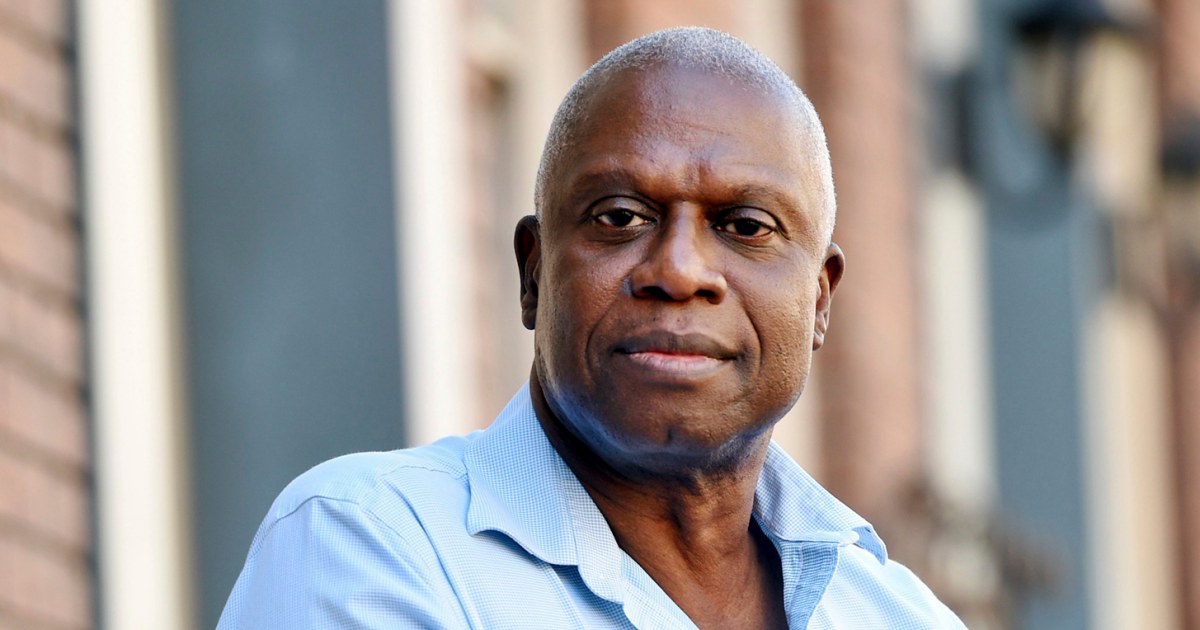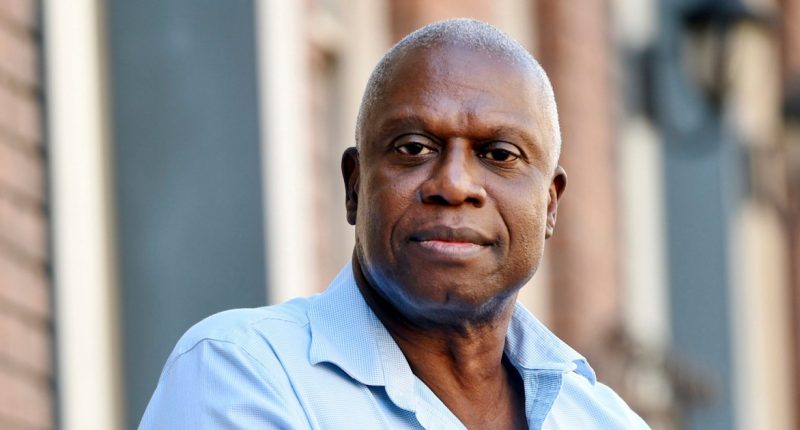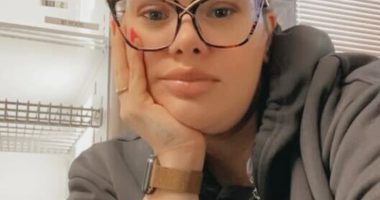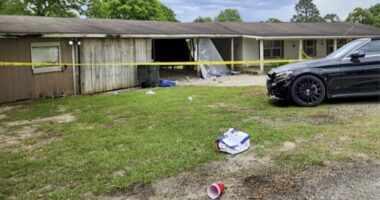
Pulmonologists have an important message for Black people: get screened for lung cancer.
The Emmy award-winning actor Andre Braugher died last week at age 61 from lung cancer, just months after being diagnosed, his representative said.
Brauger’s death underscores the prevalence of lung cancer in Black men, a group with the highest death rate of lung cancer in the country. According to the American Lung Association, one in 16 Black men will be diagnosed with lung cancer in their lifetimes, and only 12% are likely to be diagnosed at an early stage. Black men also have lower lung cancer survival rates, partially because of the low rates of early diagnosis.
While 80% to 90% of lung cancer deaths in the U.S. are linked to cigarette smoking, 10% to 20% of lung cancers occur in people who have never smoked tobacco or have smoked less than 100 cigarettes in their lifetime, according to the Centers for Disease Control and Prevention.
In a 2014 interview with The New York Times, Braugher mentioned that he had given up smoking years ago.
Some symptoms of lung cancer include a cough that never goes away, spitting up blood, shortness of breath, fatigue, pain in the chest area and weight loss. If lung cancer is caught at an early stage, treatments usually include surgically removing the cancerous tumor or stereotactic body radiotherapy, radiation that targets the cancerous cells, said Dr. Chi-Fu Jeffrey Yang, a thoracic surgeon at Massachusetts General Hospital.
While stage one, the earliest stage, is the ideal time to detect lung cancer, Yang said there are people “who are still living a really good life seven, eight years out after their diagnosis.” This is because of tremendous advancements in lung cancer treatments, such as targeted therapy and immunotherapy.
Nonsmokers who are diagnosed with lung cancer have most likely been exposed to certain environmental factors, such as pollution, said Yang, who is also an adviser at the American Lung Cancer Screening Initiative, an advocacy group dedicated to spreading awareness about the importance of early lung cancer screenings in high-risk patients. Other factors that increase risk in some people include exposure to fumes while cooking and their family history, he said.
Dr. Cedric “Jamie” Rutland, a national spokesperson for the American Lung Association a pulmonologist, agrees. “Every breath that you take, you are snatching the environment that surrounds you,” he said. Age is also a risk factor, he added.
But stigma co-exists with many lung cancer diagnoses. Yang said there is “often a lot of blame” placed on patients because of the notion that only smoking causes the disease. He said that some of his own lung cancer patients tell people they have breast cancer instead, “because breast cancer doesn’t have that same stigma.”
The screening initiative has “been trying to emphasize that really anybody with lungs can get lung cancer,” Yang said.
There’s also a sense of fatalism about the disease, which also prevents many people from getting screened.
“They think that, ‘I’m smoking. I’m going to get lung cancer. I’m going to die from lung cancer. What is the point of even getting screened?’” he said. “It’s unfortunate because if you can catch lung cancer early, you can treat it early and actually have really, really good life afterwards.”
Preventing fatal health outcomes for Black men with lung cancer comes down to recognizing symptoms, adhering to early screenings, and cutting strict eligibility requirements for screenings, said doctors who spoke to NBC News.
Research from the journal BMC Cancer in 2020 said low income and being underinsured also contribute to low screening rates. Black patients who are at a high risk for lung cancer also miss more exams and delay follow-up visits more often when being referred for a screening, additional research suggested.
Even workers trying to get to a screening can find themselves having to choose between not missing work or keeping an appointment during their doctor’s office hours.
“You can’t leave your job because it costs you money and you won’t be able to support your family,” Rutland said. “You’re not going. So, that’s a lack of access.”
The United States Preventive Services Task Force’s criteria for lung cancer screenings includes being 50 to 80 years old, having a 20-pack a year smoking history, and currently smoking cigarettes or having quit within the past 15 years.
Even with changes in eligibility requirements under the 2021 guidelines, research has found that 66% of Black women diagnosed with lung cancer would have still been ineligible for a screening, Yang said. As a result, the lung cancer screening initiative recently launched a study with the goal of screening 400 Black women ages 50 to 80 for lung cancer.
“We’ve realized that a lot of the guidelines and a lot of the recommendations, it’s really reliant only on data for white patients, or white study participants,” Yang said.
Yang said he’s been working with the screening initiative to help spread awareness about the importance of lung cancer screenings in Black communities across the U.S. by visiting health fairs and historically Black colleges and universities. His organization also holds interactive screening workshops and virtual presentations to raise awareness about lung cancer eligibility. At a September event at the University of Chicago, nearly 60 dining hall staff signed up for a lung cancer screening, Yang said.
Elsewhere, doctors have used materials from “Know Your Risk,” a program started by the Lung Cancer Research Foundation in collaboration with AME Church in 2021, to have conversations about lung cancer with their patients, said Aubrey Rhodes, the foundation’s executive director.
In an email to NBC News, Rhodes said she hopes that the program will raise awareness within the Black community — “if not among Black men themselves, the people in their lives who can influence them.”
Rutland, of the American Lung Association, said he raises awareness about lung cancer screenings through his visits to a barbershop, where a lot of Black men like himself frequent.
“I just want people to be able to have access to even ask questions, ‘Hey, I’m feeling this’ or ‘I’m feeling that’ or ‘Something’s a little bit off,’” Rutland said. “That way they have access to understand what they should be doing.”
For more from NBC BLK, sign up for our weekly newsletter.
Source: | This article originally belongs to Nbcnews.com










